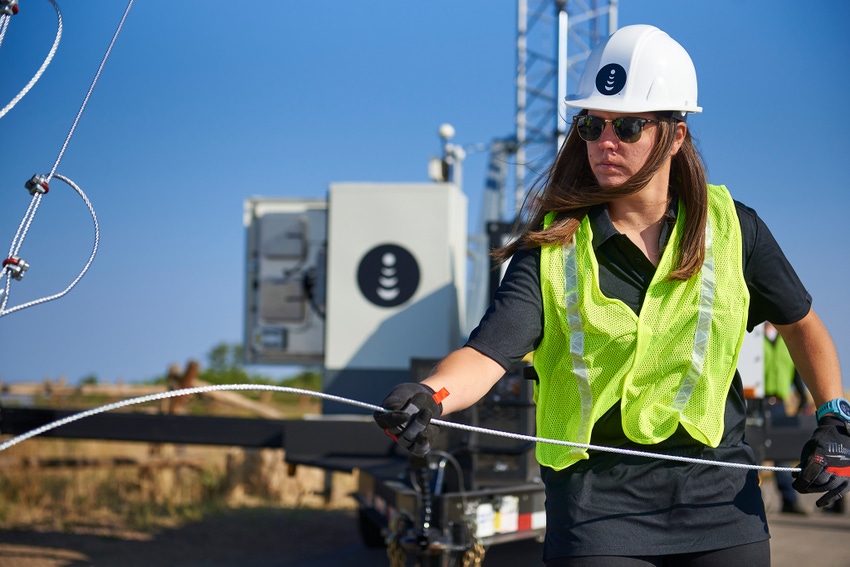Dish's 5G speeds, VoNR performance in Vegas show improvement
Dish's 5G network in Las Vegas clocked an average connection of 307 Mbit/s, and nearly 500 Mbit/s at the 90th percentile. Signals Research Group reported improvements in Dish's 5G voice calls, but said uplink connections remained a problem.

Roughly a year after testing Dish Network's 5G network in Las Vegas, the analysts at Signals Research Group (SRG) returned to the city for a new battery of tests. The upshot? It's better.
"We identified major improvements in performance between the two studies," concluded Mike Thelander, president of SRG, on social media.
"The highlight was downlink performance with much higher peak and average data speeds observed this time around on the Dish Wireless network, helped by both a denser network cell grid and by a far better implementation of downlink carrier aggregation, including support for 3CC [3 component carriers]," according to the new report. Indeed, Dish recently boasted of its implementation of carrier aggregation technology.
On download speeds specifically, SRG recorded an average connection of 307 Mbit/s, and nearly 500 Mbit/s at the 90th percentile.
"These results are well more than 2x higher than what we observed in 2022. Yes, the network was very lightly loaded ... but our experience has been that most 5G networks are relatively lightly loaded most of the time," according to the report.
And what of voice calling – using Voice over 5G New Radio (VoNR) technology – that was a major sore spot in the firm's prior testing? "VoNR voice quality was much better than in 2022, due largely to the absence of the erratic MOS [Mean Opinion Score, a voice quality rating] scoring behavior that we observed in 2022 (even while stationary)," the firm wrote. "That being said, there is still room for improvement in voice quality, but it is noteworthy the phones remained on the Dish Wireless network throughout all the VoNR drive testing – previously the calls fell to AT&T far more often than we'd like."
But the firm warned that Dish's uplink performance wasn't good – a finding that potentially underscores Dish's ongoing pursuit of T-Mobile's 800MHz spectrum in part for its uplink capabilities.
The context
Dish today covers around 240 million people with its 5G network, which is built atop the company's cloud-based open RAN network technology, its 150MHz of nationwide spectrum holdings and its 16,000 cell tower sites.
In recent weeks, Dish has begun expanding sales of its Boost Infinite postpaid brand through its own channels and through Amazon. The company's offering couples a "Smart Network" with free iPhone 15s.
Dish on its website lists dozens of cities where it is currently offering VoNR services – from Austin, Texas, to Yuma, Arizona – as well as the cities where it plans to expand, including Denver, Portland and Boston.
And if a customer doesn't live in one of the cities listed on Boost's site? "No worries. You can still sign up for Boost Infinite Access for iPhone and will be loaded onto T-Mobile's network," according to Amazon's site for the service.
According to SRG, there's not much traffic on Dish's network in Las Vegas. "Based on analyzing the resource block (RB) allocations, the Dish Wireless network was very lightly loaded in both the downlink and uplink when we did the tests during normal business hours so there is still time to address this uplink limitation before it becomes a real problem," they wrote.
Dish is likely to release its third quarter results sometime in the next few weeks and could provide details on its efforts then.
The details
The findings of SRG are noteworthy considering the firm uses professional network testing equipment to suss out the technical details of operators' networking systems, from MIMO to DSS.
For its recent tests in Vegas, SRG used two Motorola edge+ smartphones and two Samsung Galaxy A23 smartphones. It also relied on professional wireless network testing equipment from vendors like Accuver Americas, Rohde & Schwarz and Spirent Communications. The firm said it mostly conducted its tests over Dish's Band 70 (AWS-4) spectrum holdings.
The firm noted that its phones were limited to 50GB of high-speed monthly data, after which speeds were slowed to around 500 Kbit/s. "But fortunately we consumed over 100GB of data before the OSS [operational support system] caught up with our data usage," SRG wrote.
(According to Stetson Doggett of BestPhonePlans.net, Boost Infinite also recently tweaked its hotspot data settings.)
Finally, SRG said Dish's network in the area relied on vendors Mavenir (for Dish's centralized unit and distributed unit) and Fujitsu (for the radio unit).
Dish has credited Mavenir for its VoNR progress. The company also recently signed a big new deal with Samsung for its radios.
About the Author(s)
You May Also Like












